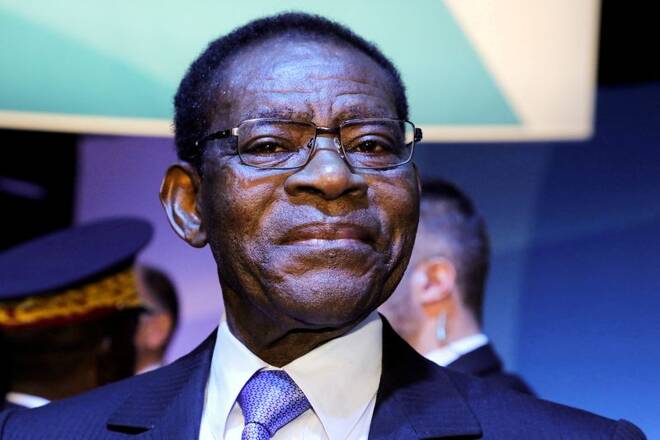Advertisement
Advertisement
U.S. has ‘serious doubts’ about announced results in Equatorial Guinea election
By:
WASHINGTON (Reuters) - The United States on Tuesday said it has "serious doubts about the credibility of the announced results" in elections in Equatorial Guinea this month and called on authorities to work with all stakeholders to address allegations of voter fraud.
WASHINGTON (Reuters) – The United States on Tuesday said it has “serious doubts about the credibility of the announced results” in elections in Equatorial Guinea this month and called on authorities to work with all stakeholders to address allegations of voter fraud.
U.S. State Department spokesperson Ned Price in a statement said allegations of “significant election-related irregularities” included intimidation, coercion and repeat voting, adding that the United States is also concerned by what he said were irregular counting practices.
“These irregularities would violate Equatoguinean law,” Price said in the statement.
“Given the scale of irregularities observed and the announced results giving the PDGE 94.9% of the vote, we have serious doubts about the credibility of the announced results,” Price said, referring to the ruling Democratic Party of Equatorial Guinea (PDGE).
Equatorial Guinea’s embassy in Washington did not immediately respond to a request for comment.
Equatorial Guinea’s vice president said on Twitter on Saturday that his father, President Teodoro Obiang Nguema, had won re-election with 95% of the Nov. 20 vote and that his party took all the senate and parliament seats. The country’s elections directorate later confirmed the results.
A win would give Obiang, 80, a sixth term in office, extending his 43-year rule and cementing his place as the world’s longest-standing ruler.
The West African country of around 1.5 million people has had only two presidents since independence from Spain in 1968. Obiang ousted his uncle Francisco Macias Nguema in a coup in 1979.
Obiang has always been elected with more than 90% of the vote, results that international observers have questioned. Critics say Obiang has rigged elections and done little to drag the country out of poverty despite great personal wealth.
Rights groups accuse him of muzzling dissent and cracking down on rivals. Protests are mostly forbidden, media is heavily controlled, and political opponents are often arrested and tortured, they say.
His son, who observers see as a potential successor, was convicted of embezzlement by a French court in 2020. Assets that foreign powers say he bought with ill-gotten gains include a crystal-covered glove worn by Michael Jackson, an armored Rolls-Royce limousine and a yacht.
Both the president and his son, the vice president, have denied wrongdoing.
(Reporting by Daphne Psaledakis and Simon Lewis; Editing by Bill Berkrot)
About the Author
Reuterscontributor
Reuters, the news and media division of Thomson Reuters, is the world’s largest international multimedia news provider reaching more than one billion people every day. Reuters provides trusted business, financial, national, and international news to professionals via Thomson Reuters desktops, the world's media organizations, and directly to consumers at Reuters.com and via Reuters TV. Learn more about Thomson Reuters products:
Did you find this article useful?
Latest news and analysis
Advertisement
